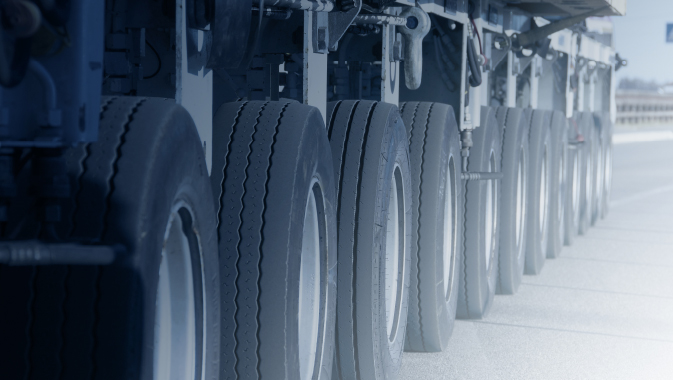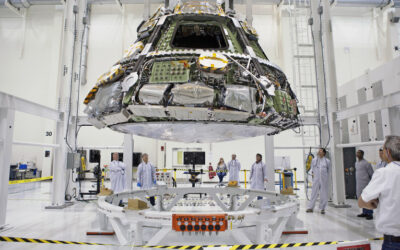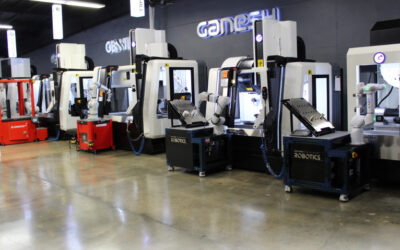For many of us, trailers may be an afterthought, but in reality, these sturdy vehicles contribute tremendously to the American economy. Every day hundreds of thousands of loads are carried across the country on sturdy trailers produced by some of the greatest craftsmen in the U.S.A.
~
With these trailers, as with everything else in life, quality is king. Easing the process of freight road transportation – a sector that moves everything from logs to lumber, heavy-duty equipment and much more – there is a custom-built trailer available for every possible task.
With some of the best expertise and workmanship in the world, there are many American trailer favorites among truck owners and everyone has a favorite fabricator they swear by. Safety and sturdiness are of the essence when it comes to hauling heavy cargo, and while the exact history of these massively essential carriers appears to have fallen by the wayside, one can only imagine that the industrial revolution must have seen an increase in their popularity as manufacturing capacities exploded and demand soared.
One of the South’s industry stalwarts is a Mississippi great who fabricates its own collection of trustworthy trailers, mainly for big players in the forestry industry. This formidable team can be found at Magnolia Trailers, Inc., which started out in 1993. Around this time, the founders identified a great need in the forestry and equipment hauling industries for a next-level fabricator with the grit it takes to be a supportive partner in this tough and challenging trade. Based in Lucedale, George County, the company’s passion for transportation is evident in its commitment to its customers.
Today, the company’s highly sought-after forestry, lumber and equipment trailers form an integral part of both the southern and national economy, hauling valuable cargo all over the country. More than 25 years of experience informs this dynamic team, and with an inventory of used trailers as well as the capacity to produce custom fabrications, this innovative business is especially well-known for its range of specialty trailers.
Contrary to the first impression one gains from the name, its pole trailers, for example, can indeed haul poles, but the name is believed to refer to the defining support that joins the front and back end supports of this model. In essence, these trailers look a bit like two dolly trailers, or small loader trailers, connected with a long pole and cables that make it fully steerable. The support is of course also attached to the towing vehicle.
This type of trailer is used exclusively for the transportation of cargo of excessive length and unusual form that can – as a general rule – support itself across the distance between the front and rear end supports of the carrier. Magnolia Trailers, Inc.’s standard pole trailers’ features include a 28 to 42 foot-length bar separating the front and rear bolster sections, a strong kingpin to secure the coupling between the towing vehicle and the trailer and a 50,000 lb. suspension. Its sealed beam lights are approved by the Department of Transportation and customers get to pick their own vehicle colors. To add to its features there is also a choice of tires.
These trailers are well-equipped for the heavy hauling that awaits them, and customers can also opt to add Stress Lek onboard scales, 9000 Ramsey winches and behind-cab headache racks for storage and protection in either aluminum or steel as optional extras. For those of us who are not in the trade, the exact origin of the fascinating term, ‘headache rack’, seems to have disappeared in the mists of time. Those in the know point out that the protection it offers from freight pushing through the cab could prevent pretty big headaches. The other guess is that perhaps workers of old kept bumping their heads on these racks when loading and nicknamed them for that.
In addition to its conventional pole trailers, and affectionately known as lowboys, Magnolia Trailers, Inc. also fabricates low-bed loader trailers. As the name suggests, these strong constructions are adapted for freight ranging across various types of equipment like bulldozers, knuckleboom loaders used to get lumber onto trailers and feller bunchers. The latter are used in the logging industry to gather and cut down clumps of young trees to create clearings. This process is achieved by applying two sets of pincers, one beneath the other, that are controlled by the driver inside an enclosed cabin. These pincers act like crab claws that gather and grip multiple trees that are all cut down by the machine, simultaneously.
The trailer’s main characteristic is that the center bed between the gooseneck – or the section that connects it to the towing vehicle – and the rear support is significantly lower than the rest of the trailer and can be adjusted to various heights. Together with its long and impressive list of standard mechanical features like a 35-ton capacity, the heavy-duty leaf springs that come with the Hutch 9700 Underslung suspension, spring loaded ramps, and more, the company name is also applied to the side of the vehicle. To add to the lowboy trailer’s capabilities, optional extras include hydraulic ramps and pintle hooks for heavy duty towing with 30-ton, 40-ton and 50-ton capacities.
Magnolia Trailers’ collection also includes delimbers – mechanized devices for shaving branches off logs.
To add to its impressive fabrication capabilities, Magnolia Trailers can also construct unique bespoke trailers to clients’ specifications, rendering top-quality, custom vehicles that are ready to take on even the toughest loads. The company’s hands-on principals, Robert and Connie Langley, are at the ready to consult with customers and to meet their exact trailer requirements.
When one considers the vast amounts of goods, materials and equipment that are hauled all over the United States annually, it suddenly becomes clear that trailers genuinely play a very large role in the value of the country’s economy. Without the trucking industry and the support services that keep it all running smoothly, the American economic landscape would look very lot different than what it does in 2019. It is thanks to the valuable contribution of fabricators like Magnolia Trailers, Inc. and its team that America – and its distribution industry – remain strong.













